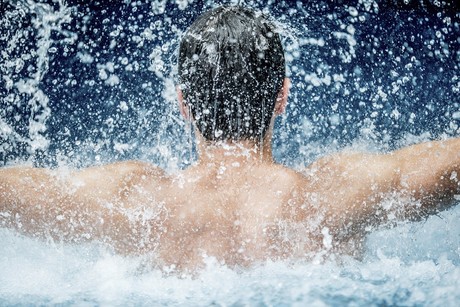Water technology could combat Western Sydney heatwaves

Could a fountain save a life? New research from UNSW Sydney and Sydney Water has found that installing more water features — including public fountains, ponds and mist — in Western Sydney could reduce the mortality rate during heatwaves by almost 50%.
Bound between the Blue Mountains and the CBD, Sydney’s west receives little relief from cool sea breezes, with summer temperatures 6–10°C higher than in the east. The west also has up to three times as many heat-related deaths compared to the east during periods of extreme temperatures.
UNSW Professor Mat Santamouris, lead researcher on the Cooling Western Sydney study, says water technology, cool tiling and pavement materials, and more canopies are crucial to providing relief from the urban heat island effect.
“We can’t rely solely on urban green spaces as a means of cooling the city in extreme temperatures,” Professor Santamouris said. “When trees are subjected to extreme heat stress, they go into survival mode to conserve water to keep themselves cool.
“We must take a multifaceted approach that includes using water technology and high solar reflectance, or albedo, on roofs, building facades and pavements.”
Conducted in collaboration with the CRC for Low Carbon Living, the study examined eight sites in the west from 2014 to 2017, including Penrith, Canterbury, Liverpool, Bankstown, Fairfield, Campbelltown, Hawkesbury and Parramatta. It found that installing water systems such as pools, sprinklers, fountains, evaporative wind towers and water curtains in combination with high-reflective materials such as infrared reflective tiles and white cool roofs can dramatically lower the ambient temperature.
By implementing these technologies, the study shows that the peak ambient temperature in Sydney’s west could be reduced by 2.5°C and top electricity demand could drop by almost 5%, which equals almost one million tonnes of avoided CO2 emissions — the equivalent of removing more than 200,000 average-sized cars from the roads each year. There would also be a reduction in cumulative heat-related deaths from 14 to 7.5 per 100,000 people.
“As Sydney is set to experience more prolonged summer heatwaves in future due to a changing climate, it will be critical for temperature peaks to be reduced to improve thermal comfort,” said Dr Michael Storey, manager research direction and value at Sydney Water.
“The careful selection of water-based technologies and building materials can take the top off the peak temperatures in extreme heatwave conditions in Sydney’s west.”
Berrima Cement Works upgrades with sustainable tech
Boral has unveiled new carbon-reducing technology at the site, which supplies 40% of cement in...
Australian orgs partner to speed circular economy
GS1 Australia has joined forces with the Product Stewardship Centre of Excellence to drive the...
Victorian utility recognised at Asian Water Awards
South East Water won two awards for its Hydrotrak Geofencing technology, which has helped it to...









